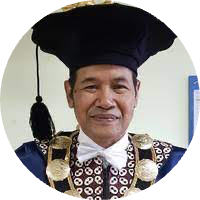EXPLORING JEPARA WOODCARVING ART AS AN ALTERNATIVE FOR CULTURE-BASED MATHEMATICS LEARNING
DOI:
https://doi.org/10.21831/ej.v5i2.76440Keywords:
ethnomathematics, Jepara woodcarving art, mathematics learningAbstract
Culturally-based mathematics learning becomes an important alternative to overcome students' learning difficulties. One relevant cultural product is Jepara Carving Art, which contains geometric concepts as part of ethnomathematics. This study aims to describe the mathematical concepts embedded in Jepara carving art and implement them as an alternative culturally-based mathematics learning method. Using a qualitative approach, data were collected through interviews, observations, and field notes, with the research subjects being Jepara carving artisans. The results show that the mathematical concepts integrated into Jepara carving art include points, lines, angles, slopes (gradients), plane geometry, circles, solid geometry, congruence, and geometric transformations such as reflection and rotation. Additionally, the ethnomathematics of Jepara carving art can be implemented as an alternative culturally-based mathematics learning method, where several ethnomathematical activities relate to school mathematics materials. These findings emphasize the importance of linking local culture with mathematics learning to enhance students' understanding. Therefore, this study recommends the inclusion of Jepara carving art in the curriculum as an effective strategy for culturally-based mathematics learning.
References
Abramson, C. M. (2021). Ethnographic Methods for Research on Aging: Making Use of A Fundamental Toolkit for Understanding Everyday Life. In Handbook of Aging and the Social Sciences (pp. 15–31). https://doi.org/10.1016/B978-0-12-815970-5.00002-4
Agus, N.A. (2008). Mudah Belajar Matematika: untuk Kelas VIII Sekolah Menengah Pertama/Madrasah Tsanawiyah. Jakarta: Pusat Perbukuan Departemen Pendidikan Nasional.
Akbar, A., Herman, T., & Suryadi, D. (2023). Culture-based discovery learning and its impact on mathematical critical thinking skills. Jurnal Ilmiah Sekolah Dasar, 7(3), 436–443. https://doi.org/10.23887/jisd.v7i3.59921
Akperov, N. ., & Yessenkeldy , T. (2023). The Role of Contextual Tasks in The Formation of Mathematical Literacy of Students in Math Lessons at School. Collection of Scientific Papers «Î›ÎŒÐ“OΣ», (May 26, 2023; Boston, USA), 249–250. https://doi.org/10.36074/logos-26.05.2023.072
Alamsyah, A., & Laksono, A. (2019). Implementation of Carving Ornaments Regulation to Reinforce Jepara as Indonesian Carving City. In The First International Conference On Islamic Development Studies 2019, ICIDS 2019, 10 September 2019, Bandar Lampung, Indonesia. http://dx.doi.org/10.4108/eai.10-9-2019.2289470
Alexander, D.C., & Koeberlein, G.M. (2020). Elementary Geometry for College Students (7th ed). Boston, MA, USA: Cengage Learning.
Alghar, M. Z. (2024). Ethnomathematics: Exploration of Mathematical Concepts in The Gate of Jamik Mosque Sumenep. Journal of Mathematics Learning Innovation (JMLI), 3(1), 1–14. https://doi.org/10.35905/jmlipare.v3i1.8871
AlKarawi, A., & AlJanabi, K. (2022). Data Reduction Techniques: A Comparative Study. Journal of Kufa for Mathematics and Computer, 9(2), 1–17. https://doi.org/10.31642/jokmc/2018/090201
Amala, I. H. N., & Gafur, A. (2020). Tradisi Nyumpet dalam Budaya Lokal Pada Masyarakat Sekuro Kabupaten Jepara. Jurnal Antropologi Isu-Isu Sosial Budaya, 22(1), 81. https://doi.org/10.25077/jantro.v22.n1.p81-89.2020
Aminah, S., & Syamsuri, S. (2022). Exploration of Jepara Carving Ethnomatics and Its Implementation in Geometry Learning Junior High School. Journal of Education and Learning Mathematics Research (JELMaR), 3(2), 127–138. https://doi.org/10.37303/jelmar.v3i2.86
Amri, L. H. A., Sakina, N. A., Ali, N. A. M., & Anwar, R. (2022). An overview of creative cities and ecotourism development in Jepara district, Indonesia. IOP Conference Series. Earth and Environmental Science, 1111(1), 012065. https://doi.org/10.1088/1755-1315/1111/1/012065
Anisa, Y., Fahruza, R., & Hafiz, M. (2023). Students' mathematical communication skills in mathematics learning. International Journal of Innovative Research in Computer Science & Technology, 11(6), 39–43. https://doi.org/10.55524/ijircst.2023.11.6.7
Ardiansyah, A. (2024). A Handy Guide to Qualitative Research in Education. The Qualitative Report, 29(1), 308-311. https://doi.org/10.46743/2160-3715/2024.6865
Ariyanti, I. E., & Malasari, P. N. (2023). Etnomatematika Bentuk Bangun Geometri Pola Seni Ukiran Kudus Pada Rumah Adat Jawa. Circle: Jurnal Pendidikan Matematika, 3(2), 150–162. https://doi.org/10.28918/circle.v3i2.1026
Ariyanto, A., Wakit, A., & Tamrin, T. (2023). Perancangan Galeri Seni Ukir Sebagai Citra Seni Arsitektur Identitas Lingkungan Kabupaten Jepara. Jurnal Talenta Sipil, 6(2), 285-296. http://dx.doi.org/10.33087/talentasipil.v6i2.312
Aryal, S. (2022). Cultural Nexus Between School and Community. AMC Journal, 3(1), 128–141. https://doi.org/10.3126/amcj.v3i1.45469
Atit, K., Uttal, D. H., & Stieff, M. (2020). Situating Space: Using a Discipline-Focused Lens to Examine Spatial Thinking Skills. Cognitive Research: Principles and Implications, 5(1). https://doi.org/10.1186/s41235-020-00210-z.
Baidoo, J., & Ali, C. A. (2023). Students' mathematics and real-life contexts in solving algebraic word problems. Al-Jabar Jurnal Pendidikan Matematika, 14(2), 483. https://doi.org/10.24042/ajpm.v14i2.19272
Bano, N., & Ara, A. (2023). Problems and Challenges faced by Tharu Tribe of Lakhimpur Kheri District, Uttar Pradesh. RESEARCH REVIEW International Journal of Multidisciplinary, 8(4), 51–59. https://doi.org/10.31305/rrijm.2023.v08.n04.006
Belaid, L. (2023). Exploring the influence of convergent communities on learners' attitudes toward divergent traits. Language and Language Teaching Journal, 26(2), 620–633. https://doi.org/10.24071/llt.v26i2.6731
Bilir , C. K., & Aydin, A. (2022). Material Development and Meeting the Needs of the Society: Example Practices for Science and Mathematics Education. Current Research in Language, Literature and Education Vol. 5, 108–123. https://doi.org/10.9734/bpi/crlle/v5/2870C
Braeutigam, S., & Kenning, P. (2022). Mathematical concepts. In An Integrative Guide to Consumer Neuroscience (pp. 53–79). Oxford University Press.
Brailas, A., Tragou, E., & Papachristopoulos, K. (2023). Introduction to Qualitative Data Analysis and Coding with QualCoder. American Journal of Qualitative Research, 7(3), 19-31. https://doi.org/10.29333/ajqr/13230
Causadias, J. M. (2020). What is culture? Systems of people, places, and practices. Applied Developmental Science, 24(4), 310–322. https://doi.org/10.1080/10888691.2020.1789360
Collins, J. T. (2019). Global eras and language diversity in Indonesia: Transdisciplinary projects towards language maintenance and revitalization. Paradigma Jurnal Kajian Budaya, 9(2), 103. https://doi.org/10.17510/paradigma.v9i2.302
D'Ambrosio, U. (1985). Ethnomathematics and its Place in the History and Pedagogy of Mathematics. For the learning of Mathematics, 5(1), 44-48. Retrieved from https://www.jstor.org/stable/40247876
de Oliveira, A. L. R., Yokoyama, L. A., Koslinski, M. C. (2021). 1, 2, 3... Let's Count: The Development of Counting at the Beginning of Compulsory Schooling. In A. G. Spinillo, S. L. Lautert, R. E. de Souza
Rosa Borba (Eds.). Mathematical Reasoning of Children and Adults. Springer Cham, pp. 115-139.
Departemen Pendidikan Nasional. (2008). Kamus Besar Bahasa Indonesia. Jakarta: Pusat Bahasa.
Desai, S., & Safi, F. (2020). Mathematical Art: Lost in Translation. The Mathematics Teacher, 113(1), 96. https://doi.org/10.5951/mtlt.2019.0100
Dewi, I., Siregar, N., & Andriani, A. (2022). The Nurturant Effects from The Development of A Local Culture-Based Mathematical Learning Model. The 8th Annual International Seminar on Trends in Science and Science Education (AISTSSE) 2021. https://doi.org/10.1063/5.0113793
Dudeja, V., Madhavi, V., & Ali, M. (2014). Jelajah Matematika 1 SMP Kelas VII (2nd ed). Jakarta: Yudhistira.
Eden, C. A., Chisom, O. N., & Adeniyi, I. S. (2024). Cultural competence in education: Strategies for fostering inclusivity and diversity awareness. International Journal of Applied Research in Social Sciences, 6(3), 383–392. https://doi.org/10.51594/ijarss.v6i3.895
Fernandes, A. C., Lima , G. F. ., Lima , J. F., Silva, A. P. A. da ., Silva, D. A. da ., Lima, R. M. ., Araújo, S. M. B. de ., Rodrigues , R. R., Silva, A. C. da ., Rodrigues, M. ., Viana, L. N. C. ., Silva Neto, J. X. da., & Moura, L. F. W. G. (2020). Contextualized education in the teaching of Mathematics: a case study at the Kindergarten and Elementary School Manoel Rodrigues do Nascimento. Research, Society and Development, 9(10), e8739109207. https://doi.org/10.33448/rsd-v9i10.9207
Gerdes, P. (1994). Reflection on Ethnomathematics. For the Learning of Mathematics, 14(2), 19-21. Retrieved from https://flm-journal.org/Articles/1CC7C4A1B63 D66ADF10C6D5AE98E58.pdf
Gilligan, K. A., Hodgkiss, A., Thomas, M. S., and Farran, E. K. (2019). The Developmental Relations Between Spatial Cognition and Mathematics in Primary School Children. Developmental Science, 22(4), e12786. doi: 10.1111/desc.12786
Gravier, S., & Ouvrier-Buffet, C. (2022). The mathematical background of proving processes in discrete optimization"”exemplification with Research Situations for the Classroom. ZDM: The International Journal on Mathematics Education, 54(4), 925–940. https://doi.org/10.1007/s11858-022-01400-3
Hendriyanto, A., Priatna, N., Juandi, D., Dahlan, J. A., Hidayat, R., Sahara, S., & Muhaimin, L. H. (2023). Learning Mathematics Using an Ethnomathematics Approach: A Systematic Literature Review. Journal of Higher Education Theory and Practice, 23(7). https://doi.org/10.33423/jhetp.v23i7.6012
Iddrisu, A. B., Bornaa, C. S., Alagbela, A. A., Kwakye, D. O., Gariba, A., Ahusah, E. T.-W., & Badger, T. N. A. (2023). Students' characteristics and academic performance in mathematics. Journal of Education Society and Behavioural Science, 36(3), 54–67. https://doi.org/10.9734/jesbs/2023/v36i31214
Ilmiyah, N. F., Sa'idah, Z. N., Nisa', I., & Wijaya, I. K. (2022). A culture-based development of mathematics learning: A case on the Muhammad Cheng Hoo Mosque of Surabaya. International Journal on Teaching and Learning Mathematics, 4(1), 1–14. https://doi.org/10.18860/ijtlm.v4i1.10980
Indrayani, H., Satriya, C. Y., Rahma, A., & Sukma, R. R. H. O. M. (2022). Developing social capital in the reputation of Jepara as a carving City. Jurnal Perencanaan Pembangunan: The Indonesian Journal of Development Planning, 6(1), 106–115. https://doi.org/10.36574/jpp.v6i1.261
Irribarra, D. T. (2021). A pragmatic perspective of measurement. In A Pragmatic Perspective of Measurement (pp. 43-62). Cham: Springer International Publishing.
Jablonski, S., & Ludwig, M. (2023). Teaching and learning of geometry"”A literature review on current developments in theory and practice. Education Sciences, 13(7), 682. https://doi.org/10.3390/educsci13070682
Jia, L., & Zhang, M. (2023). Research on The Strategies of Integrating Mathematics Culture Into Higher Mathematics Classroom Teaching. 2023 IEEE 12th International Conference on Educational and Information Technology (ICEIT), 252–255. https://doi.org/10.1109/ICEIT57125.2023.10107888
Kementerian Pendidikan dan Kebudayaan. (2016). Matematika SMP/MTS Kelas VII Semester 2 (Rev. ed). Jakarta: Pusat Kurikulum dan Perbukuan, Balitbang, Kemdikbud.
Kementerian Pendidikan dan Kebudayaan. (2017). Matematika Kelas VIII SMP/MTS Semester 2 (Rev ed). Jakarta: Pusat Kurikulum dan Perbukuan, Balitbang, Kemendikbud.
Kementerian Pendidikan dan Kebudayaan. (2018). Buku Guru Matematika SMP/MTS Kelas IX (Rev ed). Jakarta: Pusat Kurikulum dan Perbukuan, Balitbang, Kemendikbud.
Kencanawaty, G., & Irawan, A. (2017). Penerapan Etnomatematika dalam Pembelajaran Matematika di Sekolah Berbasis Budaya. Ekuivalen: Pendidikan Matematika, 27(2), 169 – 175. doi: https://doi.org/10.37729/ekuivalen.v27i2.3652
Kerscher Franco, M. M., & Flores, C. R. (2023). Geometry in art? Scenes of colonization of the look and the thinking in mathematics education. Acta Scientiae, 24(8), 42–68. https://doi.org/10.17648/acta.scientiae.7144
King, A., Ouanes, S., & Doh, C. (2023). Math-Inspired Artwork. Mathematics Teacher: Learning and Teaching PK-12, 116(6), 484-484. https://doi.org/10.5951/MTLT.2022.0311
Kurniasih, M.D., & Handayani, I. (2017). Tangkas Geometri Transformasi: Cepat Tepat Menguasai Geometri Transformasi. Fakultas Keguruan dan Ilmu Pendidikan, Universitas Muhammadiyah Prof. Dr. Hamka.
Kusaeri, A., Pardi, H. H., & Quddus, A. (2019). Culture And Mathematics Learning: Identifying Students' Mathematics Connection. Beta Jurnal Tadris Matematika, 12(1), 82–93. https://doi.org/10.20414/betajtm.v12i1.264
Kusuma, J. W., Caesarani, S., Hamidah, & Suganda. (2023). Ethnomathematics: Increased understanding of mathematical concepts in Debus and patingtung arts banten Indonesia. Advances in Nonlinear Variational Inequalities, 26(4), 65–76. https://doi.org/10.52783/anvi.v26.i4.313
Kwan, Y. L. L. (2022). Exploring Experiential Learning Practices to Improve Students' Understanding: PUPIL: International Journal of Teaching, Education and Learning, 6(1), 72–89. https://doi.org/10.20319/pijtel.2022.61.7289
Lacerda Jacinto, E., Towers, J., & Martin, L. (2024). "They know how to navigate...but they don't know where to go": Students' Feedback on Mathematics Teachers' Practices. Alberta Journal of Educational Research, 70(1), 130–141. https://doi.org/10.55016/ojs/ajer.v70i1.77811
Lahiri, S. (2023). A qualitative research approach is an inevitable part of research methodology : An overview. International Journal For Multidisciplinary Research, 5(3). https://doi.org/10.36948/ijfmr.2023.v05i03.3178
Lehrer, R., & Schauble, L. (2023). Measuring and Visualizing Space in Elementary Mathematics Learning. New York: Routledge. https://doi.org/10.4324/9781003287476
Liew, J., Chung, K. K. H., & Lam, C. B. (2022). If Culture is All Around Us, Where Is It In Our Theories and Our Research? Early Education and Development, 33(5), 739–745. https://doi.org/10.1080/10409289.2022.2078618
Lumbantoruan, J. H. (2023). Evaluation of students' difficulties in learning mathematics in complex variable material. Journal of Education Research and Evaluation, 7(3), 443–454. https://doi.org/10.23887/jere.v7i3.60532
Lumbantoruan, J. H., & Uly, R. (2022). Description of the difficulties of mathematics education students in complex analysis courses. SAINSMAT: Journal of Applied Sciences, Mathematics, and Its Education, 11(1), 1–13. https://doi.org/10.35877/sainsmat716
Makhmudova, A. A. (2022). Culture is a certain level of the historical development of society, human creative power, and abilities. European International Journal of Multidisciplinary Research and Management Studies, 02(09), 99–105. https://doi.org/10.55640/eijmrms-02-09-23
Muhtadi, D., Sukirwan, Warsito, & Prahmana, R.C.I. (2017). Sundanese Ethnomathematics: Mathematical Activities in Estimating, Measuring, and Making Patterns. Journal on Mathematics Education, 8(2), 185-198. https://doi.org/10.22342/jme.8.2.4055.185-198
Nst, M. I., & Batubara, N. K. (2024). The importance of ethnomathematics in education: A systematic literature review. Proceedings of International Conference on Education, 2(1), 552–557. https://doi.org/10.32672/pice.v2i1.1412
Pajrin, N. F., Pujiastuti, E., & Sugiman, S. (2023). Eksplorasi Konsep Geometri Transformasi Melalui Sejarah Sangasanga. AKSIOMA Jurnal Program Studi Pendidikan Matematika, 12(3), 2988. https://doi.org/10.24127/ajpm.v12i3.7523
Pipit Firmanti, Yuberta, F., Dimas Danar Septiadi, & Nurulzhia Rahma Nisa. (2024). Geometry Ability in Senior High School Students: Based on Learning Style. Hipotenusa: Journal of Mathematical Society, 6(1), 88–100. https://doi.org/10.18326/hipotenusa.v6i1.1901
Pramesti, N., & Dewi, L. (2023). The implementation of understanding by design approach in mathematics learning in elementary school. (JIML) Journal of Innovative Mathematics Learning, 6(2), 124–131. https://doi.org/10.22460/jiml.v6i2.16304
Rani, G., Kumar, P., Devi, R., Kumar, R., Kumar, S., & Kumar, M. (2023). Mathematics is a part of real life. International Journal of Advanced Research in Science, Communication, and Technology, 409–418. https://doi.org/10.48175/ijarsct-11665
Razzaq, S., Shahid, C. (2024). Cultural Background and Reading Strategies: A Study Based on the Sociocultural and Constructive ESL Approach. Journal of Policy Research, 10(2), 97–106. DOI: https://doi.org/10.61506/02.00211.
Risku, H., Hirvonen, M., Rogl, R., & MiloÅ¡ević, J. (2022). Ethnographic research. In The Routledge Handbook of Translation and Methodology (pp. 324–339). Routledge.
Rohman, B., & Jarudin. (2024). Cultural wealth: Indonesia's gateway to become the center of global Islamic civilization. International Journal of Religion, 5(3), 451–457. https://doi.org/10.61707/nvsme578
Salma, R., Fevironika, D. O., & Zuliana, E. (2022). Ethnomathematical study of Jepara troso ikat weaving motifs in two-dimensional geometry mathematics. Kontinu: Jurnal Penelitian Didaktik Matematika, 6(2), 102. https://doi.org/10.30659/kontinu.6.2.102-115
Salmia, S. S. (2023). Development of quality instruments and data collection techniques. Jurnal Pendidikan dan Pengajaran Guru Sekolah Dasar (JPPGuseda), 6(1), 119–124. https://doi.org/10.55215/jppguseda.v6i1.7527
Schoevers, E. M., Leseman, P. P. M., & Kroesbergen, E. H. (2020). Enriching Mathematics education with visual arts: Effects on elementary school students' ability in geometry and visual arts. International Journal of Science and Mathematics Education, 18(8), 1613–1634. https://doi.org/10.1007/s10763-019-10018-z
Snodgrass, J. G., Brewis, A., Dengah, H. J. F., II, Dressler, W. W., Kaiser, B. N., Kohrt, B. A., Mendenhall, E., Sagstetter, S., Weaver, L. J., & Zhao, K. X. (2023). Ethnographic methods for identifying cultural concepts of distress: Developing reliable and valid measures. Field Methods, 35(3), 175–197. https://doi.org/10.1177/1525822x221113178
Sulistyowati, E., & Mawardi, D. N. (2023). The effectiveness of ethnomathematics based learning on mathematics ability of elementary school students: A meta-analysis study. Al-Bidayah Jurnal Pendidikan Dasar Islam, 15(1), 1–26. https://doi.org/10.14421/albidayah.v15i1.879
Susanta, A., Koto, I., & Susanto, E. (2022). Teachers' Ability in Writing Mathematical Literacy Module Based on Local Context. Education Quarterly Reviews, 5(3), 173-179. https://doi.org/10.31014/aior.1993.05.03.536
Taylor, K. B. (2023). Exploring How Epistemologies Guide the Process of Coding Data and Developing Themes. In A. L. Terosky, V. L. Baker, J. C. Sun (Eds.). A Practical Guide to Teaching Research Methods in Education. London: Routledge, pp. 9.
Turmuzi, M., Suharta, I. G. P., Astawa, I. W. P., & Suparta, I. N. (2024). Meta-Analysis of The Effectiveness of Ethnomathematics-Based Learning on Student Mathematical Communication in Indonesia. International Journal of Evaluation and Research in Education (IJERE), 13(2), 903. https://doi.org/10.11591/ijere.v13i2.25475
Ulwiyyah, S. (2023). Perancangan Kawasan Pusat Seni Ukir Kayu Kota Jepara. Journal of Architecture and Human Experience, 1(1), 53–60. https://doi.org/10.59810/ajahe.v1i1.5
Utami, R.N.F., Hermanto, R., Muhtadi, D., & Sukirwan. (2021). Etnomatematika: Eksplorasi Seni Ukir Jepara. Jurnal Penelitian Pendidikan dan Pengajaran Matematika, 7(1), 23 – 38. https://doi.org/10.37058/jp3m.v7i1.2551
Utami, R.N.F., Muhtadi, D., Ratnaningsih, N., Sukirwan, & Hamid, H. (2020). Etnomatematika: Eksplorasi Candi Borobudur. Jurnal Penelitian Pendidikan dan Pengajaran Matematika, 6(1), 13 – 26. https://doi.org/10.37058/jp3m.v6i1.1438
Williams, M. & Moser, T. (2019). The Art of Coding and Thematic Exploration in Qualitative Research. International Management Review, 15 (1), 45-55. imr-v15n1art4.pdf (imrjournal.org).
Wulandari, D. U., Mariana, N., Wiryanto, W., & Amien, M. S. (2024). Integration of ethnomathematics teaching materials in mathematics learning in elementary school. IJORER: International Journal of Recent Educational Research, 5(1), 204–218. https://doi.org/10.46245/ijorer.v5i1.542
Zainul, R. (2018). Desain Geometri Sel PV. Solok: Penerbit dan Percetakan CV Berkah Prima.
Zulfayani, Z., Ariawan, R., Nufus, H., & Kafrina, K. (2023). Profile of Students' Numeracy Literacy Ability and Self Efficacy in Mathematics Learning. Mathematics Research and Education Journal, 7(2), 25–35. https://doi.org/10.25299/mrej.2023.vol7(2).14381
Downloads
Published
How to Cite
Issue
Section
Citation Check
License
The authors submitting a manuscript to this journal agree that, if accepted for publication, copyright publishing of the submission shall be assigned to Ethnomathematics Journal. However, even though the journal asks for a copyright transfer, the authors retain (or are granted back) significant scholarly rights.

Ethnomathematics Journal by https://journal.uny.ac.id/index.php/ethnomath is licensed under a Creative Commons Attribution-ShareAlike 4.0 International License.












